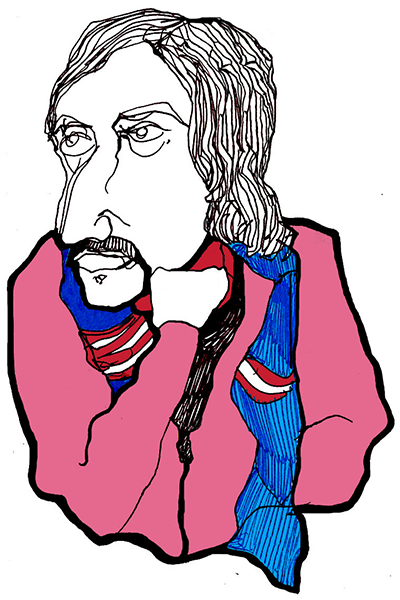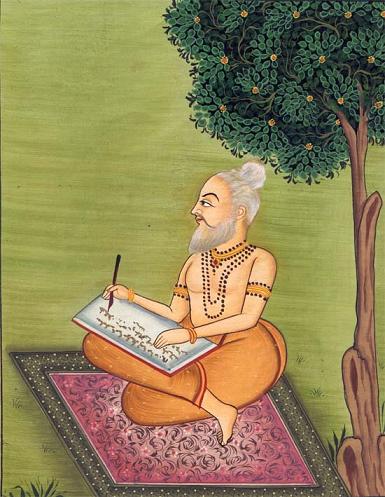No one is poor in AyodhyaNo one is unhappy in AyodhyaNo one goes hungry in AyodhyaNo one is robbed in AyodhyaNo one is beaten in AyodhyaNo one is illiterate in AyodhyaNo one is an atheist in AyodhyaNo one is cruel or miserly in AyodhyaNo one is a slave in AyodhyaNo one is sick in AyodhyaNo one is old or crippled in AyodhyaNo one in Ayodhya After Valmiki’s Ramayana: Bālakanda, sarga 6
Ayodhya
Valmiki
Translated from the Sanskrit by Vivek Narayanan
Note
The Ramayana, South Asia’s most famous and influential epic poem, is everything from a love story to a darkly disturbing meditation on the doublespeak of statecraft and the failure of ethics. It exists simultaneously in countless continually reinventing free translations, both textual and performative versions in dozens of languages, so many that, as the poet Aditya Bahl notes, “there is no Ramayana as such, only its ‘different tellings.’” Vivek Narayanan’s versions after Valmiki often begin with close studies of a source text in the Sanskrit that is more than a thousand years old, but, in this tradition of Ramayanas, the poems are meant to be new, open, ambiguous and detailed conversations between the ancient and the present, the Sanskrit and the English, rather than what we normally think of as translation today.
Feature Date
- March 1, 2021
Series
- Translation, What Sparks Poetry
Selected By
Share This Poem
Print This Poem
Copyright © 2016 by Vivek Narayanan
All rights reserved.
Reproduced by Poetry Daily with permission.

Photo:
Illustration by Dyuti Mittal
Illustration by Dyuti Mittal
Vivek Narayanan’s books of poems include Universal Beach, Life and Times of Mr S and the forthcoming AFTER: a Writing Through Valmiki’s Ramayana (NYRB Poets, 2022). A full-length collection of his selected poems in Swedish translation was published by the Stockholm-based Wahlström & Widstrand in 2015. He has been a Fellow at the Radcliffe Institute, Harvard University (2013-14) and a Cullman Fellow at the New York Public Library (2015-16). His poems, stories, translations and critical essays have appeared in journals like The Paris Review, Granta.com, Poetry Review (UK), Modern Poetry in Translation, Harvard Review, Agni, The Caribbean Review of Books and elsewhere, as well as in anthologies like The Penguin Book of the Prose Poem and The Bloodaxe Book of Contemporary Indian Poetry. Narayanan is also a member of Poetry Daily’s editorial board. He was the Co-editor of Almost Island, an India-based international literary journal from 2007-2019.
In response to surges of violent British nationalism and political paranoia around borders, and to related social and ethical crises, JT Welsch and Ágnes Lehóczky have assembled an anthology to mark the vital contribution of non-UK-born writers to this country’s poetry culture. Wretched Strangers brings together innovative writing from around the globe, celebrating the irreducible diversity such work brings to ‘British’ poetry. While documenting the challenges faced by writers from elsewhere, these pieces offer hopeful re-conceptions of ‘shared foreignness’ as Lila Matsumoto describes it, and the ‘peculiar state of exiled human,’ in Fawzi Karim’s words.
The book is published by Boiler House Press to commemorate the anniversary of the June 2016 EU Referendum and in solidarity through struggles ongoing and to come. Proceeds will be donated to charities fighting for the rights of refugees.
Poetry Daily Depends on You
With your support, we make reading the best contemporary poetry a treasured daily experience. Consider a contribution today.





